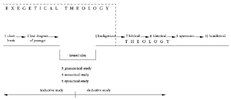Afterthought
Puritan Board Senior
This is partly an historical and partly an apologetics question. Some liberals like to accuse us Protestants of innovating the literal approach to interpreting the bible. That is, that "literalism" is fairly modern; the church used to take the Scriptures non-literally. How should one respond to this claim, especially if it is true in some sense? And if it is true in some sense, in what sense is it true? I'll be willing to do a bit of online reading, if there are recommendations. So far as I know about this claim, there was an allegorical method that was popular, but I'm also fairly sure there were literal schools of thought too, though I don't recall the extent, influence, or relations of these methods.

